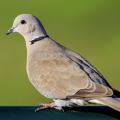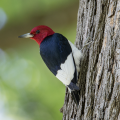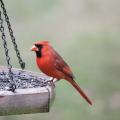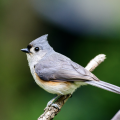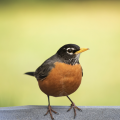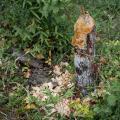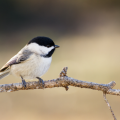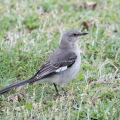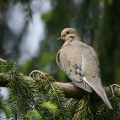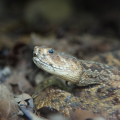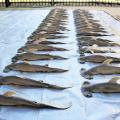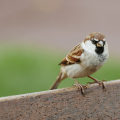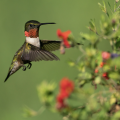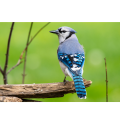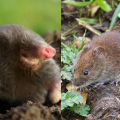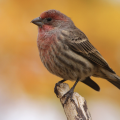News Filed Under Wildlife
RAYMOND, Miss. -- Small ruminants are a popular choice for people like J.T. Crownover who want to get into the livestock business but do not want to raise cattle. Crownover attended the Central Mississippi Research and Extension Center’s Producer Advisory Council meeting Feb. 20. The forum, where agricultural producers can discuss their needs with MSU administrators, researchers, specialists and Extension agents, was the catalyst for the university’s active small ruminant program.
STARKVILLE, Miss. -- “Where are all the ducks?” It’s a question James Callicutt fields with more frequency and urgency from hunters and birders in Mississippi by the year.
Callicutt, a Mississippi State University Extension Service instructor specializing in waterfowl and wetlands ecology, said aerial waterfowl survey data show duck abundance in the southeastern U.S. is well below average.
We’ve reached the end of our yearlong series that introduced you to some of Mississippi’s birds! We hope these blog posts have helped you identify and learn more about our feathered friends.
Many birds aren’t as easy to identify as red-headed woodpeckers. With their bright red head and neck feathers and loud pecking noise, they surely know how to make their presence known!
Want your feathered friends to have a supplemental source of food this winter? Set out a bird feeder for them. There are many types of bird feeders, but they are not all created equal. Check out the common types of feeders and decide which ones will work best in your yard.
September tends to mark the end of summer, and our thoughts drift toward cooler weather activities such as fall gardening, football and hunting.
In the world of birds, fall marks the time for many to begin their migration. Most species of birds migrate to some extent, but as renowned waterfowl biologist Frank Bellrose said, “Waterfowl are highly visible in migration; they epitomize this phenomenon for most people.”
The tufted titmouse is a bird you’ve likely seen in parks, woodlands, and in your back yard. They’re native to the eastern parts of the United States and are attracted to areas where there is an abundance of broadleaf trees, such as oaks, hickories, and maples.
“Rockin’ robin, tweet-tweedle-lee-dee!” You sang that sentence as you read it, didn’t you?
Shortly after Emily Duggar bought property in Madison County to build a house near Canton, she realized there were beavers on a creek that ran through the back of the property.
“We saw evidence that beavers were taking down trees and gnawing on trees,” Duggar said. “We could see they were building a dam, and they’ve since built two more dams. The water is rising,” she said. “We haven’t had any flooding yet, but we’ve heard that some people who live in the neighborhoods behind our property have flooding from the creek.”
If you hear a bird call that sounds like a fast, high pitched “chick-a-dee-dee-dee,” you can confidently say it’s coming from a Carolina chickadee– they get their name from this distinctive call.
Every Mississippian is familiar with the northern mockingbird. In 1944, it became the official bird of Mississippi.
While scientists know bats eat mosquitoes, the insect makes up only part of their diet. So the question is: Do bats significantly lower mosquito numbers?
“Coo-OO-oo-woo!” With their rather sorrowful call, the mourning dove sings one of the most recognizable songs.
Snakes, like other wildlife, need a suitable place to live and enough food to eat. If the area around your home checks these boxes, they may take up residence there. These tips can help reduce the chances of a surprise encounter with a snake around you house.
BILOXI, Miss. -- On April 21, beachgoers in Orange Beach, Ala., were enjoying a pleasant day of sun, sand and surf when they witnessed an incredible event they’ll never forget.
A deceased female great hammerhead shark, the largest of the three hammerhead species occurring in the Gulf of Mexico, suddenly washed ashore.
Have you ever noticed the small birds hopping around parking lots scrounging for food and wondered what kind they were? There’s a good chance they were house sparrows.
Everyone loves Ruby-throated hummingbirds! I have fond memories of watching these hummingbirds visit the many feeders my grandparents put out each year. You probably have a similar story! Hummingbirds are fascinating creatures, with their bold-colored feathers and fast-fluttering wings.
Blue jays are easy to recognize by both their noisy call and bold blue feathers. Also known as jaybirds, blue jays are members of the crow family and native to the United States.
Moles and voles are often confused with one another. They both can cause damage to your lawn and their names sound very similar. You can use the beginning letter of their name to help you remember the difference!
We’re on month two of learning about the different types of birds in Mississippi. For February, we’re discussing the house finch.

